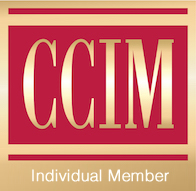The things listed below are just some of the guidelines that you may want to consider.
1. Money Matters
- The lender will base their assumptions on the amount you qualify for, not on the amount you are comfortable spending. Don’t wait for the lender to find out how much you can afford. Do your homework. Consider how much you are willing to spend. Remember, this is a lifestyle decision. Think about other expenses such as travel, education, and maintenance reserves.
- When you are contemplating how much of a loan you can afford, make provisions for insurance, taxes, homeowner association dues and other unanticipated costs you may incur.
- The best strategy is to actually calculate the taxes and other expenses rather than “ballparking”. Avoid surprises. Your real estate agent will help you find the property that fits the price you are willing to pay.
2. Your Realtor® is there to help.
Ask about:
- Types of mortgages
- Risks and benefits of different types of financing
- Types of homes and the best match for you
- Location, features and price range
- Tax issues and responsibilities of a homeowner
Even if this is your first or second time buying a home, you still need to ask as much questions as you can. The options available to you when you first bought a home may not be the same this time.
3. Check your credit.
Request a copy of your credit report as soon as possible and look out for:
- Too many open credit cards accounts
- Unclosed accounts you thought you had closed
- Alleged non-payments and inaccuracies
Make sure you have time to prepare before a lender previews your credit history. Allow at least a week to close dormant or unwanted accounts and clear up discrepancies. According to the US Public Research Interest Group (PIRG), 79% of credit reports contain serious errors or mistakes. Make sure you are in the 21% that does not have the errors!
4. Gather and organize valuable documents.
Accumulate all the necessary information you will need when you file your loan application. Ask your real estate agent or mortgage lender for a complete checklist so that you are fully prepared.
Some of these documents include:
- Income tax returns and W2’s for the past 2 years
- Pay stubs from employer
- Bank statements for the last 2 years
- An updated and accurate credit report
5. Get pre-approved, not pre-qualified!
- Pre-approval gives you the security of shopping for a home that you can honestly afford.
- Pre-approval tells the seller that you are serious, ready to buy, and solidly financed.
- In a competitive bidding situation, pre-approval can be your advantage over other offers that are not pre-approved.
6. Avoid pre-mortgage pitfalls.
Do not do anything that can negatively impact your ability to qualify for a mortgage loan. Until
the time your loan closes, avoid:
- Changing jobs
- Switching banks
- Moving your money around
- Making major purchases
7. Build your “need to have” and “nice to have” list.
Every buyer have their “perfect” home in mind, but let’s face it, you are not going to get everything. It’s good to have a list of two things. One side will have all the things that the home must definitely have or what we call the decision-making factors and the other side will have the bonuses. Your list may look similar to the one below.
Need to Have
- Size and space
- Number of bedrooms and bathrooms
- Fireplace
- Wooden floors
- School district
Nice to Have
- Pool
- Sun Deck
- Garden
- Short commute to work
- Vicinity to shopping outlets
All information in this report is deemed reliable, but not guaranteed. ©
2012 PropertyMinder, Inc. www.propertyminder.com



